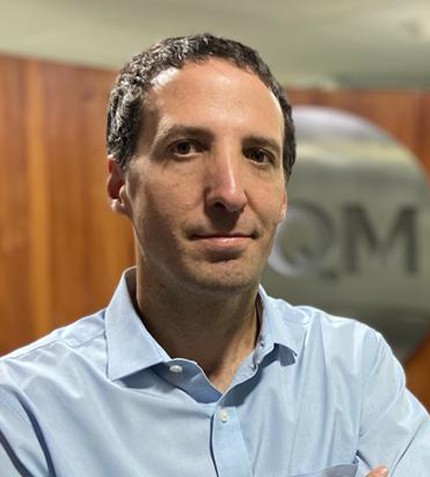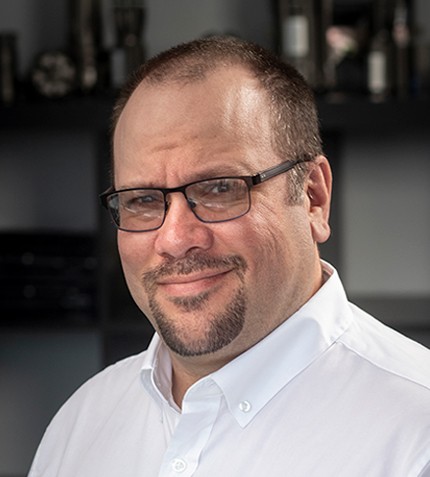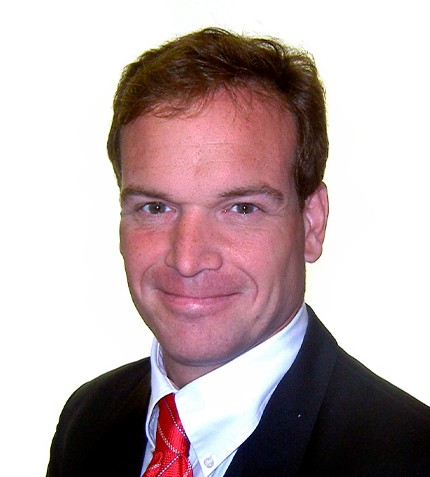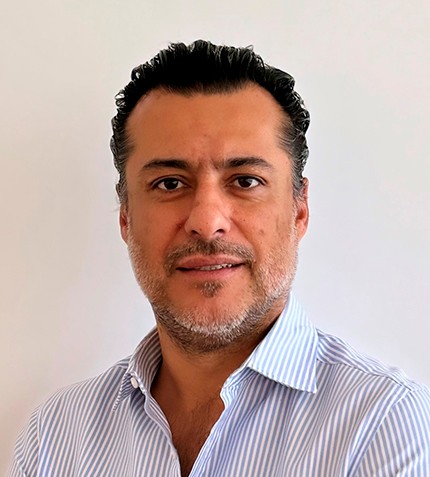
“Regarding lithium in Chile, we are increasing our capacity from 120,000 t/y of lithium carbonate to 210,000 t/y in the middle of 2023.”
Gerardo Illanes
CFO, SOCIEDAD QUÍMICA Y MINERA DE CHILE (SQM)
SQM reported its best quarterly performance in 1Q 2022, with an almost twelve-fold increase in earnings. What were the biggest contributing factors?
The results of the first quarter are the reflection of several positive circumstances and constant work. Large investments financed by our shareholders and bondholders, together with the great execution of an ambitious investment plan, and tremendous dedication of the SQM team.
In the lithium industry, we have seen a price increase associated with very strong growth in demand for electric vehicles around the world. At the same time, the investments we have made have allowed us not only to produce and sell larger amounts of product (with less consumption of brines from the Salar de Atacama), but also to develop products with greater added value, of better quality and which consequently are sold at higher prices.
In the iodine market, we have seen a strong recovery in demand, after the big drop we saw at the beginning of the pandemic. We are investing a significant amount to be able to increase our capacity by 1,000 t/y by the end of this year and another 2,500 t/y by the end of next year. We are doing all of this at the same time as we are in the process of developing a seawater pipeline that will allow us to significantly reduce the consumption of continental water. Finally, the fertilizer market has been affected by the situation in Eastern Europe, which has affected the potassium chloride supply chain, while logistical difficulties around the world have continued to put pressure on markets.
Can you provide details of SQM's US$400 million investment to expand lithium carbonate production capacity?
We have a very ambitious investment plan that considers US$2.25 billion between 2021 and 2024. Regarding lithium in Chile, we are increasing our capacity from 120,000 t/y of lithium carbonate to 210,000 t/y in the middle of 2023. This is a tremendous achievement because we are making these capacity increases while we are reducing our extraction of brines from the Atacama Salar by 50%, on a voluntary basis. We are also investing in additional lithium hydroxide capacity, to reach 40,000 t/y, and incorporating technology that allows us to produce products with higher added value and better quality.
Additionally, we are increasing our iodine production capacity in Chile by 3,500 t/y, along with an increase in nitrate processing by more than 300,000 t/y. Finally, we continue to work on the development of the Mount Holland lithium project in Western Australia, together with our partners at Wesfarmers, in a 50/50 JV that will allow us to initially produce 50,000 t/y of lithium hydroxide.
Could you highlight some of SQM's ESG-related initiatives?
In 2020 we presented a robust sustainability program because our objective is to become not only leaders in production costs, but also to add to the best world standards in sustainability in our production of potassium nitrate, solar salts, iodine and lithium.
For example, we planned to reduce brine extraction in 2020, and that same year there was a 20% reduction, towards the goal of reaching 50% reduction by 2030. We are also lowering our continental water consumption in all operations to achieve a 40% reduction by 2030 and 65% by 2040. Additionally, we are investing to be carbon neutral in all our products by 2040, and in the case of lithium, potassium chloride and iodine by 2030. Additionally, we are committed to maintaining and deepening the responsible management of the natural resources used, working together with the communities to support the care and protection of these ecosystems.
How can a balance be found between the growth of the company and the care of indigenous interests?
SQM supports agreements that directly support the development of the communities for their life plans. An example of the direct agreements is the one signed in 2020 with the Community of Camar, which allows the development of a new form of associative relationship with a community with which a tense situation existed in the past for different reasons. This agreement established a standard to be considered for future agreements with communities originating from the Salar de Atacama.
General relationship agreements have also been signed with three other communities (Toconao, Rio Grande and Talabre) and we are in the process of signing at least three more general agreements with other communities. Furthermore, the same relationship policy is implemented with the communities and their environment in the area of our operations in La Pampa, framed by similar associative principles, highlighting in recent times the start of the relationship processes with the communities of Quillagua and Huatacondo among several other communities in the region of our present operations and those projected in the future.










